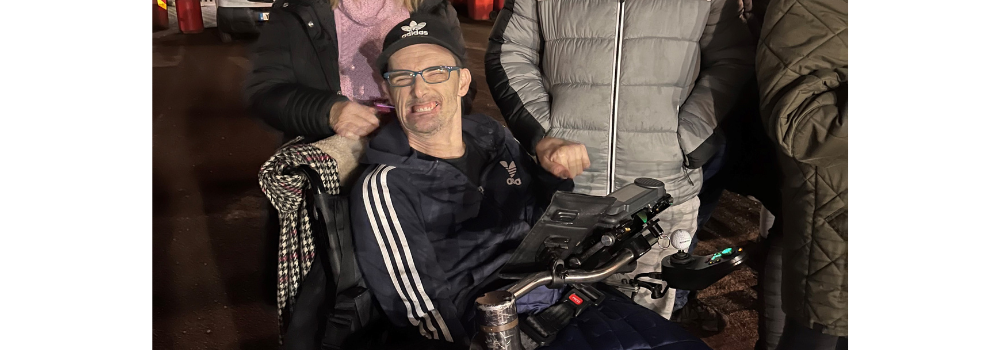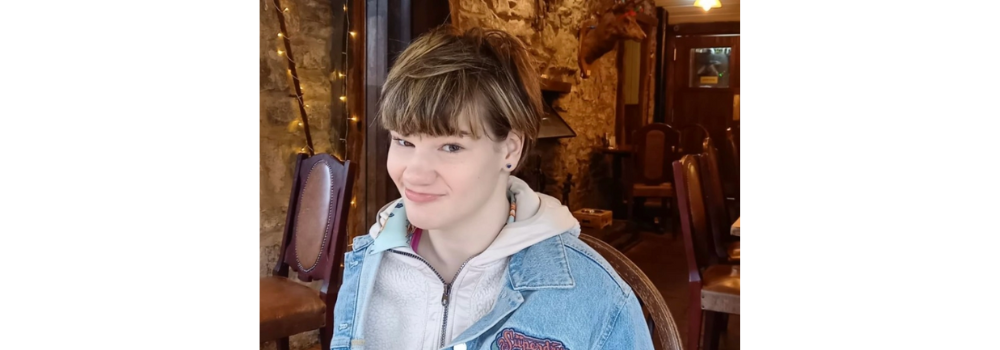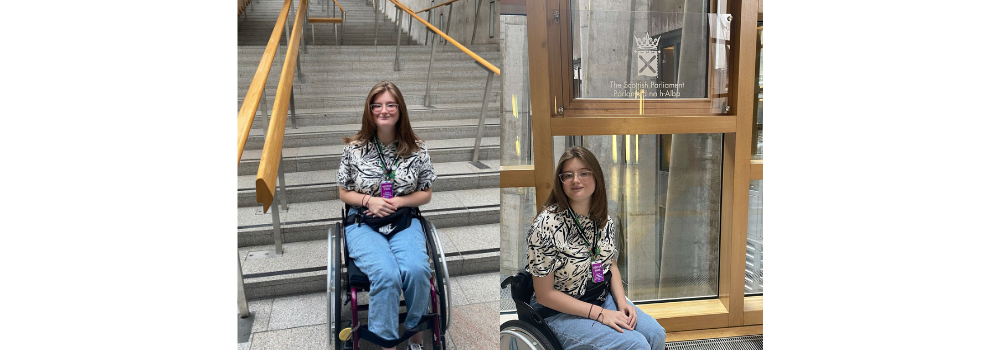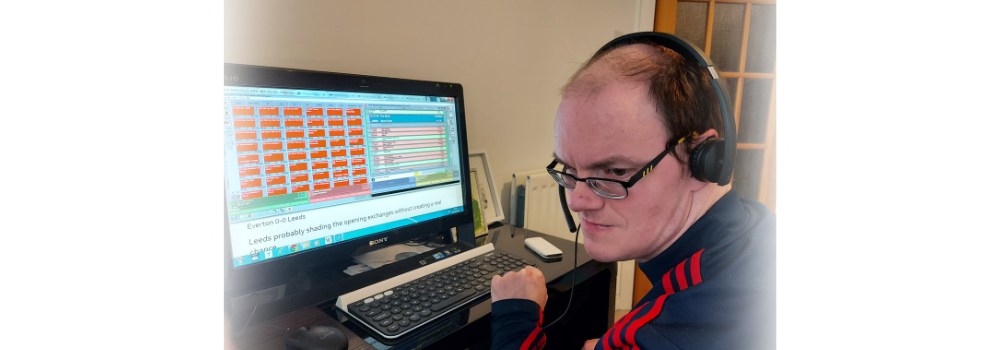As part of cerebral palsy awareness month, Barry writes about a typical day in his life.
Hello my name is Barry Smith and I am 43 years old. I am in a power wheelchair because I have cerebral palsy (CP) which is a physical disability. Down to me having this, I am going to write about 24 hours living with CP to let people understand what it feels like.
Before I start, I am going let you know how I am writing this. I am using a computer with a big keyboard which has an overlay on it, so I don’t press the wrong key. I use my big toe to type, and I use a jelly still for my mouse.
Each morning when I open my eyes at home I get out of bed by using my bum. The first thing I do is make my way to my lift which is just off my bedroom. When I get to my lift I press the button which is on the wall, which opens the door to it, then I bum my way into the lift. As soon as I am in the lift I press the button to close the door, as soon it close I press the down button. The lift goes downstairs with me in it, and as soon as it stops, I press the open button to bum my way out.
By this time one of my Personal Assistants (PAs) is in my house. The first thing the PA do for me is they make me a cup of coffee and put it on my coffee table and then put a straw in it, so I can drink it by myself. The PA give me my Lightwriter which is a small computer. When I type into it and press the speech button it tells people who don’t know what I am saying to them, I can type it, so they know what I want.
Then the PA ask me what they can make me for my breakfast. As soon as I tell them, the PA asks me, do I want to eat now or will I do my housework first. Most times I say to them do my housework first, then I get my breakfast made when I want it. They ask what I want to eat and drink so the PA can make it for me, and as soon as it is ready I sit up on my big chair in my living room so the PA could feed me with my food, and they put what I want to drink on my coffee table for me to drink.
Then I get back into my lift and my PA goes upstairs to do my support which I am not writing about. When I come back down the stair if I need to go out, like getting my shopping, I do. My PA will come. This is because I need support when I am out.
My day goes on this way, and my PA leaves about 10 pm and I go on my PC before going to bed. Before the PA goes they make me something to eat then they feed me with it and do what personal support I may need. I go on the PC for head space before I make my way to bed for the night.
See more articles and blogs from cerebral palsy awareness week.



